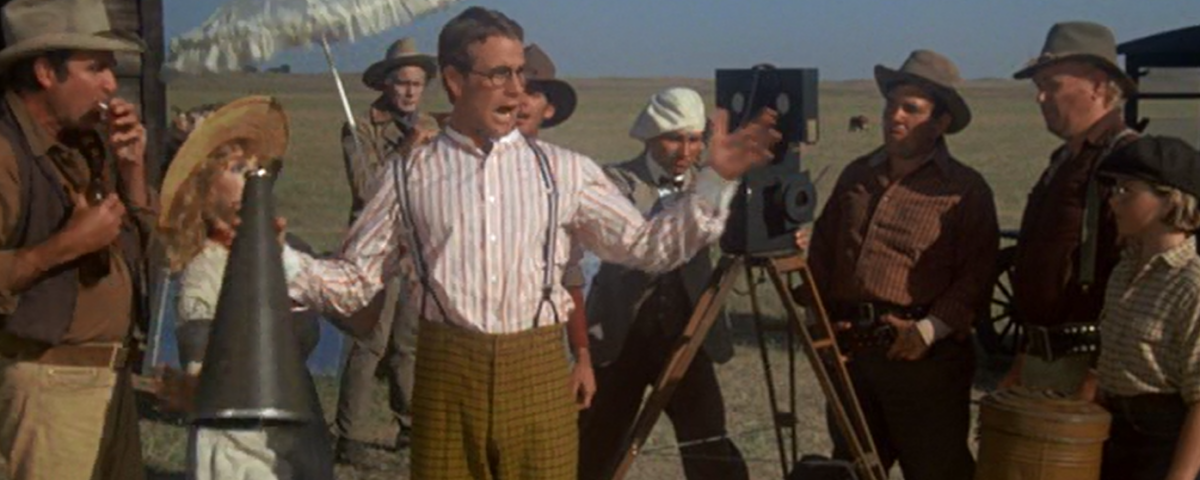Another Underrated List is yet another list of so called “underrated” films from yet another white guy who writes about films on the internet. This issue, I’m adding Nickelodeon, Peter Bogdanovich’s love letter to the early days of filmmaking, to that list.
-Mark
Now, I know what you’re thinking given the title. No, Nickelodeon is not an origin story for the children’s television network. The term, which long predates cable television, refers to a type of movie theater that thrived at the dawn of cinema.
Nickelodeons were nothing more than a single room, usually inside an old storefront, with wooden chairs and bare walls, one of which the film would be projected onto. As they were small in size, so to was the size of the films they played, or at least in our modern understanding of how long a film is. The films of the Nickelodeon era were one reelers, that is, a film’s entire run time comprised of one reel of film or roughly twelve minutes. As for the name Nickelodeon, well, they charged a nickel for admission.
Nickelodeon the film, shows us the heyday of the Nickelodeon theater, that is the dawn of Hollywood. No one in the New Hollywood of the 1970’s was more obsessed with the Hollywood of old than director Peter Bogdanovich. (Though Martin Scorsese and Steven Spielberg certainly come close.)
Taken in part from his interviews with Roal Walsh and Allan Dwan, Nickelodeon the film follows the adventures of a rag tag movie crew, led by writer/director Leo Harrigan (Ryan O’Neal), actors Buck Greenway (Burt Reynolds) and Kathleen Cooke (Jane Hitchcock), and rattlesnake wrangler, sometimes writer/preteen truck driver Alice (Tatum O’Neal). They all, as is the case with a lot of early Hollywood filmmakers, stumble into the movie business. (In Leo’s case, literally.)

playing inside a Nickelodeon
The movie business was still in its infancy during the era of the Nickelodeon, but at the same time going through growing pains and the turmoil of its teenage years. As Nickelodeon declares in its opening, the first war in movies was a real war. While this is a hyperbole on the part of Bogdanovich, the so called “war”, i.e. the conflict between The Motion Pictures Patent Company and any other film production company, was a real one. The Patents Company was a trust, founded by Thomas Edison along with a handful of the other big producers of the day, designed to eliminate competition legally by controlling who could and couldn’t use film cameras. The protagonists of Nickelodeon, as independent producers, fell in to the couldn’t use film cameras category.
Because of this, they are the classic, rag-tag underdogs, trying to make their movies work by whatever means possible. It’s honestly a joy to see how they go about doing this, from constant improvisation to defying overbearing producers. This is what I love most about Nickelodeon. In addition to satisfying my love of early Hollywood, it is just plain fun. It has a slapstick-light style that makes it an interesting novelty.
While I understand why this film bombed at the box office, i.e. movies about Hollywood usually occupy a niche market, I can’t understand why it was trashed by critics. Sure, Nickelodeon does strike an odd balance between this comedy and drama at times, so that you’re never sure if a scene will be played straight or for laughs. But this is worthy of the vitriol of critics like John Simon, who in his review stated “anyone who catches himself laughing at any of this late date should seriously consider committing himself to the nearest mental hospital even though in his case a cure is hardly to be hoped for.”
Ultimately, Nickelodeon could have been better, but at the end of the day, it is a very pleasant film to watch, one that I find myself coming back to again and again when I want my fill of fantasizing about the early days of the movie business.
*Author’s Note: Nickelodeon contains some depictions of blackface as well as some aggrandizement of The Birth of the Nation. My endorsement of Nickelodeon, is not an endorsement of these horribly racist and detrimental actions. Rather, my hope is that by watching this film, you will acknowledge these appalling depictions as a sad part of the history of movie making, and move forward by preventing them from ever being depicted again.
Nickelodeon is currently available to stream on Amazon Video, Apple TV+, and Google Play And if you’re looking for another take on Nickelodeon from another curator of underrated films on the internet, check out The Forgotten by David Cairns.
Originally published in February 2020.
